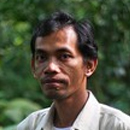Description
Indonesia and Malaysia accounted for 56% and 28% of global palm oil supply in 2018, respectively. Palm oil production has been linked to legal and illegal deforestation, degradation of peatlands and other negative impacts In recent years, improvements in laws, monitoring and enforcement have led to reductions in deforestation. However, with growing demand for palm oil, deforestation concerns have persisted, including among investors and buyers seeking to mitigate risks attached to deforestation. A wide range of stakeholders have been working to quantify, slow and halt palm oil-linked deforestation, to improve sector sustainability and image.
The EU-funded KAMI (Keberlanjutan sAwit Malaysia dan Indonesia (Sustainability of Malaysian and Indonesian palm oil) Project, which is implemented by EFI (European Forest Institute), aims to reinforce EU-Indonesia and EU-Malaysia partnerships by supporting national processes and international dialogue on the sustainable use of natural resources, with specific focus on palm oil. The intended outcomes of KAMI are to provide: i) Strengthened basis for dialogue on palm oil sustainability; ii) Improved national and subnational capacity on sustainability monitoring and traceability; and iii) Strengthened communication and dissemination efforts on sustainable palm oil production.
EFI has invited CIFOR to participate in the KAMI Project. The 2021 objectives that CIFOR will address include: i) Identify and compare existing tools, certifications, and approaches, esp. for gaps, lessons learnt, best practices, and operational modalities; ii) Assess support and challenges for jurisdictions/districts to transition to sustainability; and iii) Analyse key actions, incentives/disincentives and enabling measures to lift jurisdictions/districts to sustainability.



























